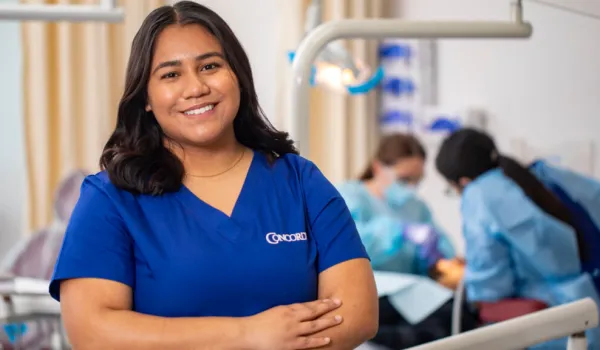
Just because you have a job in health care doesn't mean your education is complete. If we are to believe Socrates, our educations are merely the kindling of an eternal flame. So how do we keep the fire burning and what are the benefits of doing so? Let's take a look at Continuing Education (CE) and continuing your education as two separate ideas as you pursue your journey in health care.
WHAT ARE CE CREDITS?
Designed to keep health care workers up-to-date on medical advances, continuing education (CE) credits are an educational requirement for professionals with health care careers. They fill the gap between current care and optimal care and are mandated by licensing boards, professional societies and certification boards for health care professionals.
CE has been highly effective at improving patient outcomes and saving lives. How? According to The Institute for Health Care Improvement, "CE is a vehicle for spreading best practices and how to improve patient outcomes." In short, continuing education is a way to keep health care teams abreast of current research in the fields in which they practice.
For example, fatalities from coronary heart disease have been reduced by almost 40 percent since the year 2000. This improvement in patient outcome was due to new drugs, new technologies, new protocols and an emphasis on prevention, such as lower cholesterol levels. One of the ways these advances were communicated to health care professionals was through CE courses, including medical technologists and nurses.
CONTINUING YOUR EDUCATION
Set aside the fact that your employer or state licensing board may require that you pursue CE credits to remain employed or legally allowed to practice your craft. The real benefit of continuing your education - aside from the usual rush of soaking up all there is to know in your field - is how you can advance your career organically by continuing to do something you love.
Perhaps you are currently working as a medical assistant at a busy medical practice. You've seen the nursing staff in action - helping them out with increasing frequency - and know that you have the desire and temperament to serve your patients well. Why not continue your educational progress and work toward your degree as a registered nurse? Or if you're already an RN, why not pursue a BSN online?
Or similarly, if you are already licensed as a dental assistant, you may have your sights set on becoming a dental hygienist and ultimately a dentist. Or if you haven't started school yet, why not plan that career trajectory now?
The quality of patient care and general public health are enhanced by evidence-based medicine. CE ensures that the best evidence is known, understood and implemented by health care professionals. Your own participation in your health education benefits you professionally and the health care community you work in.
Health care professionals committed to lifelong learning can further their educational dreams at schools like Concorde. Let one of our career counselors help get you started.
Take The Next Step Towards a Brighter Future
We have a Concorde representative ready to talk about what matters most to you. Get answers about start dates, curriculum, financial aid, scholarships and more!




